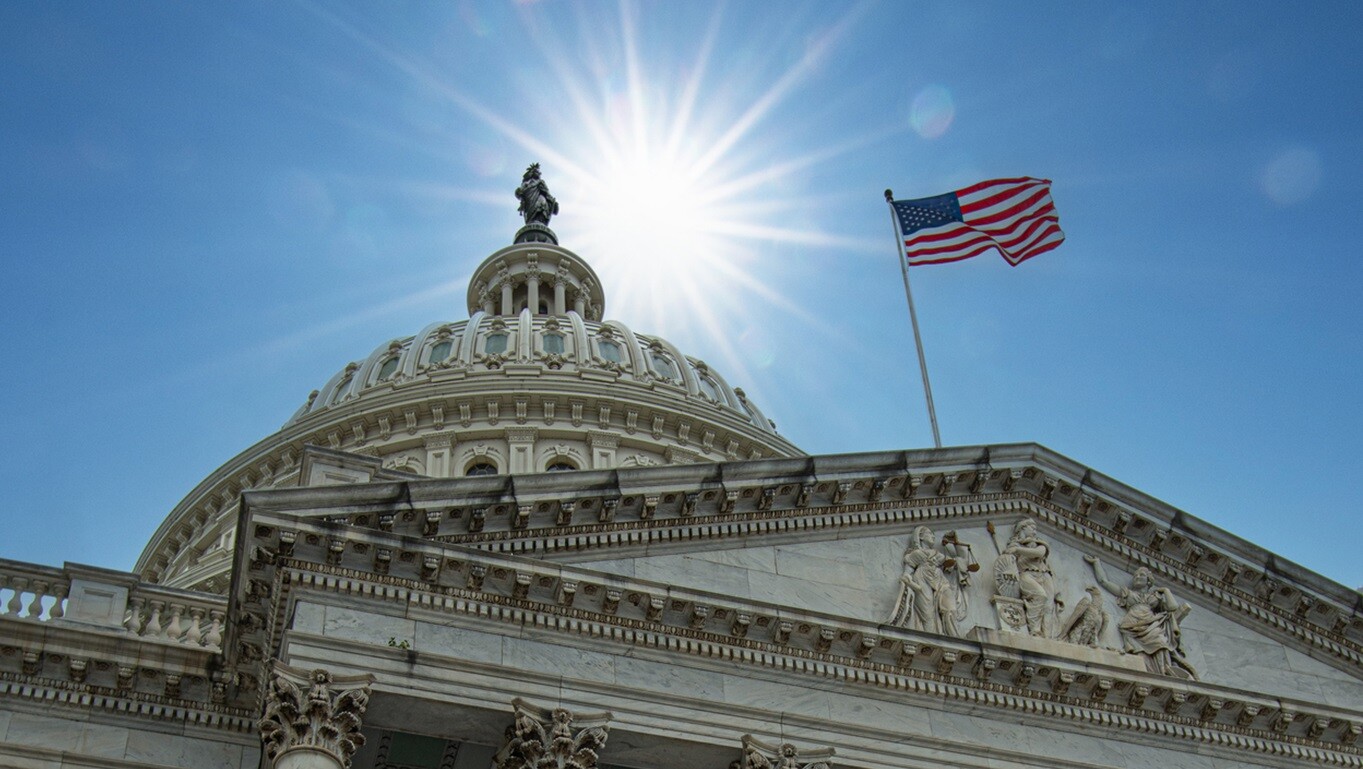
Opportunities abound for government contractors. The FindRPF website reports that businesses of all sizes sign over 11 million federal contracts annually, with approximately $1 billion in new opportunities available daily. However, success in this field requires more than expertise — it demands a thorough understanding of the insurance requirements for government contractors. These primarily mandatory requirements are as diverse as the contracts, ranging from set-aside contracts to joint ventures, each with equally diverse challenges and rewards.
For contractors navigating this complex yet potentially lucrative field, insurance programs for government contractors are a critical shield against distinct risks. As we explore the specifics of these insurance requirements, it becomes clear why a one-size-fits-all approach doesn’t work in protecting government contractors.
What You Will Learn
- Why Government Contractors Need Specialized Insurance
- Specific Insurance Requirements for Government Contractors
- Common Claims Across Top Government Contracting Industries
- How Tailored Insurance Solutions Protect Contractors
- Partner With Sahouri for Custom Government Contractor Insurance
Why Government Contractors Need Specialized Insurance
Government contractors operate in an environment where standard commercial insurance policies fall short. The unique challenges they encounter include:
- Strict compliance with federal regulations is crucial, including specific insurance requirements like the Defense Base Act (DBA) for overseas contracts.
- High-liability projects with significant public impact necessitate robust coverage beyond typical commercial policies.
- Complex contract requirements and potential disputes may require specialized legal defense coverage.
- The Cybersecurity Maturity Model Certification (CMMC) is a standard that is always changing. It requires certain security measures and insurance coverage to protect sensitive government data from cyber threats.
- Overseas operations pose risks, such as war hazards and political instability.
These factors, combined with the vast quantity and diversity of government contracts, significantly alter the risk profile compared to a typical business. For instance, a contractor working on an overseas Department of Defense project would need DBA insurance. In contrast, an IT contractor handling sensitive data would be required to have cyber liability insurance that meets CMMC requirements.
The ever-changing landscape of government regulations necessitates that insurance requirements continually evolve. The CMMC framework, particularly in cybersecurity, raises the bar for contractors' security practices and insurance requirements. Consequently, the government contracting sector needs custom insurance plans that address these risks and adapt to regulatory changes. Despite the fact that generic commercial policies may seem sufficient, they cannot provide the comprehensive, adaptable protection that government contractors require.
Specific Insurance Requirements for Government Contractors
Insurance requirements for government contractors can vary significantly depending on the nature of the contract and the contractor's role, whether as a prime contractor or a subcontractor.
Prime Contractors
Prime contractors, who hold direct contracts with the government, typically bear the brunt of insurance responsibilities. Their requirements often include:
- General liability insurance: Usually with higher limits due to increased exposure.
- Professional liability (errors and omissions) insurance: Crucial for service-based contracts
- Workers' compensation insurance: Mandatory coverage for employees
- Cyber liability insurance: Particularly important for contracts involving sensitive data
- Property insurance: To protect assets used in fulfilling the contract
- Commercial auto insurance: Covers any vehicles used in contract-related activities
- Umbrella/Excess liability insurance: Provides additional coverage above primary policy limits
For overseas contracts, prime contractors often have to keep DBA insurance and make sure they meet CMMC standards, which could mean they need more cyber coverage.
Subcontractors
While subcontractors may have limited direct interaction with the government, they still face significant insurance requirements, including:
- General liability insurance: Often lower limits than prime contractors, but still substantial
- Workers' compensation insurance: Mandatory for their employees
- Professional liability insurance: Especially for specialized service providers
- Cyber liability insurance: Necessary when handling sensitive data, even indirectly
The following areas frequently reveal the key differences for subcontractors:
- Lower coverage limits: Compared to prime contractors, subcontractors may have lower insurance limits.
- Flow-down clauses: Prime contractors often require subcontractors to maintain similar insurance coverage to what the government requires of the prime.
- Indemnification agreements: Subcontractors may be required to indemnify the prime contractor, necessitating a thorough review of insurance requirements.
Overlapping Considerations
Both prime contractors and subcontractors should be aware of the following:
- Contract-specific requirements: Each government contract may have unique insurance stipulations.
- Compliance with federal regulations: These include FAR (Federal Acquisition Regulation) clauses related to insurance.
- Duration of coverage: To cover potential claims, policies often need to extend beyond the contract period.
No matter if they are the prime contractor or a subcontractor, contractors who do business internationally may need to get more overseas insurance to cover the risks that come with working abroad.
Given the complexities and potential for overlapping requirements, prime contractors and subcontractors benefit from working with experienced insurance providers in government contracting to ensure comprehensive and compliant coverage.
Common Claims Across Top Government Contracting Industries
Understanding the most frequent claims in prominent contracting sectors underscores the need for specialized coverage.
Construction
- Worksite injuries
- Property damage during construction
- Delays leading to financial losses
Information Technology/Telecommunications
- Data breaches and cyberattacks
- Software failures causing operational disruptions
- Intellectual property disputes
Architectural/Engineering
- Design errors leading to structural issues
- Cost overruns due to miscalculations
- Environmental impact oversights
These examples illustrate why standard policies are inadequate and highlight the importance of industry-specific insurance solutions, especially given the high volume and diverse nature of government contracts.
How Tailored Insurance Solutions Protect Contractors
Customized insurance policies offer several advantages in the complex world of government contracting. They provide reassurance and security, knowing you have adequate protection in this high-risk industry.
Compliance Assurance
Tailored policies ensure contractors meet specific government contract requirements, avoiding potential disqualification or penalties.
Comprehensive Risk Coverage
Specialized policies address unique risks, such as handling sensitive government data or working in high-security environments.
Operational Continuity
With the proper insurance, contractors can maintain operations even when facing legal challenges or project setbacks, ensuring they can fulfill their contractual obligations and maintain profitable government relationships.
Financial Protection
Proper coverage can prevent devastating economic losses in a dispute or a contract breach. For example, imagine a government IT contractor working on a sensitive database project. Despite robust cybersecurity measures, hackers breach the system, exposing classified information in what's become an all-too-frequent occurrence. The contractor could face the following risks in the absence of specialized cyber liability insurance:
- Legal fees for potential lawsuits
- Costs of forensic investigation
- Expenses for notifying affected parties
- Potential fines and penalties
- Loss of future contracts due to reputational damage
These costs could quickly escalate into millions of dollars. However, a tailored cyber liability policy for government contractors would cover these expenses, potentially saving the company from bankruptcy and preserving its ability to secure future contracts.
Partner With Sahouri for Custom Government Contractor Insurance
At Sahouri Insurance, we understand that government contracting is not a one-size-fits-all industry. Our technology-driven, consulting-based approach allows us to craft insurance solutions that address government projects' complexities and high-risk nature.
Whether you're a small business venturing into government contracting for the first time or an established contractor managing multiple federal agreements, our team of advocates will work with you to:
- Analyze your specific contract requirements across various contract types
- Identify potential risk exposures unique to your operations and contract portfolio
- Design comprehensive insurance packages that provide optimal protection
- Ensure compliance with all relevant federal regulations.
Don't let insufficient insurance coverage jeopardize your government contracts or business. Protecting your company with suitable insurance coverage is crucial to obtaining numerous lucrative opportunities and the potential for stable, profitable work. Contact Sahouri Insurance today for a consultation on customizing your government contractor insurance to meet your unique needs and safeguard your future in this challenging yet rewarding field.



